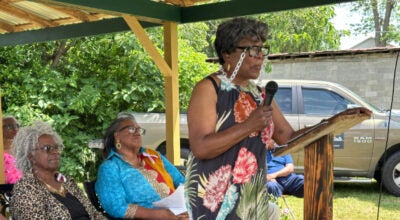Local legislators split on Common Core fate
Published 12:12 am Sunday, February 8, 2015
By Sarah Cook
The Natchez Democrat
NATCHEZ — The Common Core State Standards are receiving mixed reviews from local legislators as the legislative session continues.
Adopted by the Mississippi Board of Education in 2010, the program is part of a nationwide initiative designed to ensure a single set of educational standards. Through those standards, the aim is to create a level playing field for all high school graduates as they pursue higher education or join the workforce.
With $12 million already invested in the standards, some legislators argue that dismantling it would waste dollars already spent.
However, other legislators cite if results show the program is ineffective, the state should stop investing in the standards.
Sen. Melanie Sojourner, R-Natchez, said she supports full repeal of the program.
“I don’t think we should keep investing in it if we know it’s failing,” Sojourner said. “I’d rather take that loss early than keep throwing money at something that is not working.”
Sojourner said the program’s fault lies in its heavy emphasis on standardized testing — and what she thinks is a government overreach on states’ rights.
Common Core requires students in grades K through 12 pass two standardized tests — one in math and another in English language arts — to advance to the next grade level.
“If teachers, administrators and parents in Mississippi work together to determine what’s best (for students), then we would be better off than with the government dictating down what they have to do,” Sojourner said.
Sen. Kelvin Butler, D-Magnolia and Rep. Robert Johnson, D-Natchez, said the program needs more time in state schools. Such little time the standards have been used in state classrooms is simply not enough to determine the program’s worth.
“Common Core is a method that has been examined by the State Department of Education, the U.S. Department of Education and it has been embedded with the purpose of finding a way to teach children to tackle learning in a more comprehensive manner,” Johnson said. “It’s been proven that wherever it’s been effectively put in place, that is raises the results in terms of educational outcome, which is what we should be working on here at the state level.”
Agreeing with Johnson, Butler said the heart of the issue — the students — has been lost in the Common Core debate.
“I think it’s all about politics,” Butler said. “Students have been lost, and they should be the main focus.”
And with the 45 other states on board with Common Core, Butler said the program keeps Mississippi students competitive with students nationwide.
“We’ve only been working on this for four years now, and throwing it out doesn’t give it a fair shot,” Butler said.
Suggesting a less drastic solution to the issue, Rep. Sam Mims, R-McComb, said the state should “put a pause” on Common Core.
“I think most people out there — in southwest Mississippi and throughout the state, believe in having high standards,” Mims said. “But Common Core might not be the right approach. I think we need to strongly reevaluate the program.
“I think we will address (Common Core) more in this session, but it is still very early on in the process to determine what the final outcome will be for this 2015 legislative session.”
The Common Core program was developed by the National Governors Center for Best Practices and the Council of Chief State School Officers with input from teachers, parents, school administrators and other state education experts.
States that have not adopted the standards include Alaska, Texas, Nebraska and Virginia.
Oklahoma, Indiana and South Carolina originally adopted the standards, but have since withdrawn.





